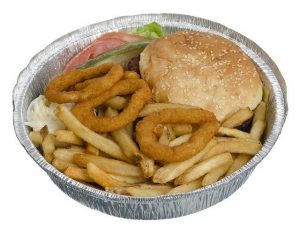![]() The Columbine Health Systems Center for Healthy Aging in partnership with CSU Extension and Senior Access Points of Larimer County held a series of COVID-19 Expert Panel webinars. The series was created to help provide clarity on public health recommendations as the coronavirus pandemic evolves. Panelists include CSU faculty experts in gerontology, infectious disease, biosafety, mental health, food safety and geriatric medicine.
The Columbine Health Systems Center for Healthy Aging in partnership with CSU Extension and Senior Access Points of Larimer County held a series of COVID-19 Expert Panel webinars. The series was created to help provide clarity on public health recommendations as the coronavirus pandemic evolves. Panelists include CSU faculty experts in gerontology, infectious disease, biosafety, mental health, food safety and geriatric medicine.
Panel of experts answers some of your health questions.
Questions were gathered in advance of the panel from the community. They focused largely on food safety, vaccination expectations, school re-openings, and transmission/safety practices. Below is some of information provided by panelists.
How effective is a vaccine likely to be? When will it be available? 
It appears that it’s going to be a few months still before a vaccine will be available for the general public. The testing that is being done is moving as fast as possible. The effectiveness has to do a lot with the availability of that vaccine. They’re looking very promising but there could still be something that doesn’t work out with these trials of thousands of people. We have to wait and see the next developments. But it looks very promising that we could have one by the end of the year or shortly after that.
Would you feel safe getting a vaccine that has been fast-tracked through the FDA approval process?
Even though it’s a fast track system, you don’t need to get too hung up on the fast track part of it because there are thousands of people being vaccinated with these vaccines. For those thousands of people, the studies must prove safety and efficacy. Once it’s proven and made available for the general public, I would feel very happy to get that vaccine. Of course, I’d want to see any contraindications, if there are any, since I’m in the mid-70s age group and have a few other issues. I want to make sure it’s definitely safe but also I want to get vaccinated because I think that will help protect me and those around me.
Is it safe to eat out at restaurants if you are in the high-risk group?
 Evidence is helping us understand that food prepared in restaurants or bought in a grocery store is not strongly associated with the spread of COVID. But if you’re going to eat out, you’ll be around other people. Think ahead through the situation. While it’s fun to go out and have meals that someone else fixes, if you’re not sure what the situation is, you may want to find out in advance. How is the spacing of tables and chairs? Is there outdoor seating? Restaurants follow regulations but there are certain things that can’t be controlled. You should follow 6-foot distancing. Waiting areas might have more people. You may think of alternatives like picking up food and having it at a table in your back yard or park.
Evidence is helping us understand that food prepared in restaurants or bought in a grocery store is not strongly associated with the spread of COVID. But if you’re going to eat out, you’ll be around other people. Think ahead through the situation. While it’s fun to go out and have meals that someone else fixes, if you’re not sure what the situation is, you may want to find out in advance. How is the spacing of tables and chairs? Is there outdoor seating? Restaurants follow regulations but there are certain things that can’t be controlled. You should follow 6-foot distancing. Waiting areas might have more people. You may think of alternatives like picking up food and having it at a table in your back yard or park.
Why don’t we get COVID-19 from food?
 Most viruses are not food born because they can’t survive in food itself. A virus is required to be inside of our cells to grow. Viruses typically aren’t in our food at that level. Foodborne illnesses are different than respiratory or other mucosal infections. They have to survive our stomach acid. So most viruses typically are not infectious through the gastrointestinal tract because of the low pH in our stomachs. The reason we cover our nose and mouth is because the virus can live inside our nasal or oral cavities. That’s different than the environment of our stomach.
Most viruses are not food born because they can’t survive in food itself. A virus is required to be inside of our cells to grow. Viruses typically aren’t in our food at that level. Foodborne illnesses are different than respiratory or other mucosal infections. They have to survive our stomach acid. So most viruses typically are not infectious through the gastrointestinal tract because of the low pH in our stomachs. The reason we cover our nose and mouth is because the virus can live inside our nasal or oral cavities. That’s different than the environment of our stomach.
You can find the full recording of the panel discussions here. Previous Expert Panel webinars can be found on the Center for Healthy Aging’s YouTube playlist. Visit The Columbine Health Systems Center for Healthy Aging for upcoming COVID-19 Expert Panel dates or follow the Center on Facebook.

